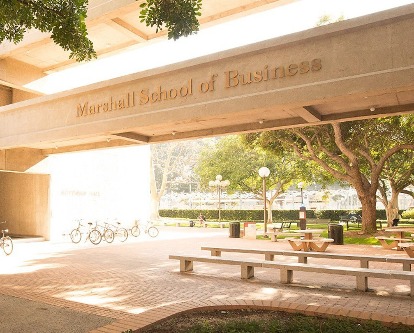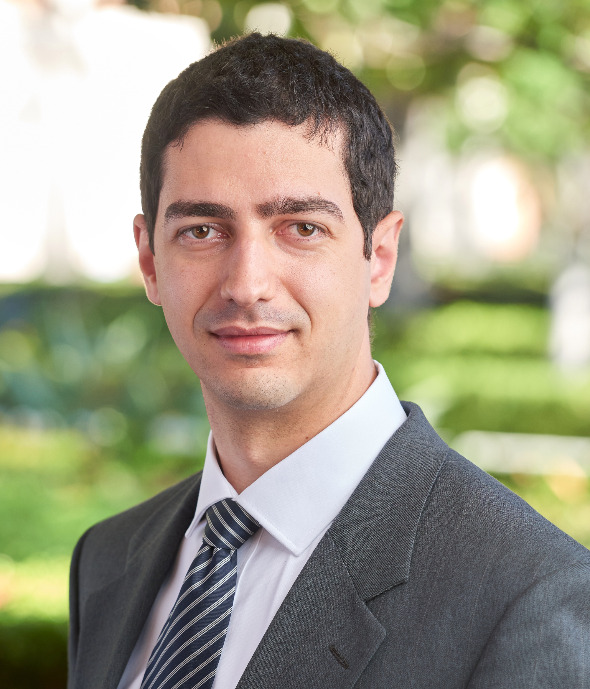
Marshall Faculty Publications, Awards, and Honors: September 2025
We are proud to highlight the many accomplishments of Marshall’s exceptional faculty recognized for recently accepted and published research and achievements in their field.
Matteo Sesia is a tenured Associate Professor in the Department of Data Sciences and Operations at the USC Marshall School of Business, with a courtesy appointment in Computer Science at the USC Viterbi School of Engineering. His research lies at the intersection of statistics and machine learning, focusing on developing rigorous and practical methods for analyzing high-dimensional and noisy data in settings where traditional modeling assumptions may not hold.
A central theme of his work is distribution-free and model-agnostic inference: statistical methods that enable reproducible variable selection and trustworthy uncertainty quantification while working alongside modern machine learning models. These methods aim to make black-box models and modern AI systems more transparent, reliable, and scientifically defensible.
Professor Sesia currently serves as an Associate Editor for two leading journals in statistics: the Journal of the Royal Statistical Society (Series B), and Biometrika.
He joined USC in 2020 after completing his Ph.D. in Statistics at Stanford University under the supervision of Emmanuel Candès, earning the Jerome H. Friedman Applied Statistics Dissertation Award for his doctoral work. Prior to that, he studied at Politecnico di Torino and Collegio Carlo Alberto, in Italy.

Areas of Expertise
Departments
NEWS + EVENTS
Marshall Faculty Publications, Awards, and Honors: September 2025
We are proud to highlight the many accomplishments of Marshall’s exceptional faculty recognized for recently accepted and published research and achievements in their field.
Marshall Faculty Publications, Awards, and Honors: June/July 2025
We are proud to highlight the many accomplishments of Marshall’s exceptional faculty recognized for recently accepted and published research and achievements in their field.
Faculty Publications, Awards, and Honors: May 2025
We are proud to highlight the many accomplishments of Marshall’s exceptional faculty recognized for recently accepted and published research and achievements in their field.
Marshall Faculty Publications, Awards, and Honors: December 2024 and January 2025
We are proud to highlight the many accomplishments of Marshall’s exceptional faculty recognized for recently accepted and published research and achievements in their field.
For a list of recent faculty promotions, please visit here.
Marshall Faculty Publications, Awards, and Honors: October 2024
We are proud to highlight the many accomplishments of Marshall’s exceptional faculty recognized for recently accepted and published research and achievements in their field.
USC Marshall Faculty Honored in Chair Installation Ceremony
Fourteen high-achieving faculty were installed with endowed chairs.
Marshall Faculty Publications, Awards, and Honors: August 2024
We are proud to recognize the many accomplishments of Marshall’s exceptional faculty, including recently accepted and published research and achievements in their field.
Marshall Faculty Publications, Awards, and Honors: May 2024 and Year-End Recognitions
We are thrilled to congratulate Marshall’s exceptional faculty recognized for recently accepted and published research, 2023–2024 awards, and other accolades.
For a complete list of Golden Apple and Golden Compass Awards, voted on by students, please visit HERE.
For a complete list of Faculty and Staff Awards, please visit HERE.
Faculty and Staff Awards Honor Stand-Out Members of Marshall School
The Marshall community recognized their fellow faculty and staff for leadership, inclusivity, and excellence in teaching and research.
Marshall Faculty Publications, Awards, and Honors: March 2024
We are proud to highlight the amazing Marshall faculty who have received awards, recognitions, and publications for their groundbreaking work.
RESEARCH + PUBLICATIONS
This paper presents a conformal inference method for out-of-distribution testing that leverages side information from labelled outliers, which are commonly underutilized or even discarded by conventional conformal p-values. This solution is practical and blends inductive and transductive inference strategies to adaptively weight conformal p-values, while also automatically leveraging the most powerful model from a collection of one-class and binary classifiers. Further, this approach leads to rigorous false discovery rate control in multiple testing when combined with a conditional calibration strategy. Extensive numerical simulations show that the proposed method outperforms existing approaches.
This paper studies the construction of p-values for nonparametric outlier detection, taking a multiple-testing perspective. The goal is to test whether new independent samples belong to the same distribution as a reference data set or are outliers. We propose a solution based on conformal inference, a broadly applicable framework which yields p-values that are marginally valid but mutually dependent for different test points. We prove these p-values are positively dependent and enable exact false discovery rate control, although in a relatively weak marginal sense. We then introduce a new method to compute p-values that are both valid conditionally on the training data and independent of each other for different test points; this paves the way to stronger type-I error guarantees. Our results depart from classical conformal inference as we leverage concentration inequalities rather than combinatorial arguments to establish our finite-sample guarantees. Furthermore, our techniques also yield a uniform confidence bound for the false positive rate of any outlier detection algorithm, as a function of the threshold applied to its raw statistics. Finally, the relevance of our results is demonstrated by numerical experiments on real and simulated data.
Genome-wide association studies compare a phenotype to thousands of genetic variants, searching for associations of potential biological interest. Standard analyses rely on linear models of the phenotype given one variable at a time. However, their assumptions are difficult to verify and their univariate approaches make it hard to recognize interesting associations from spurious ones. Our work takes a different path: We analyze all variants simultaneously, modelling the randomness in the genotypes, which is better understood, instead of the phenotype. Our solution accounts for linkage disequilibrium and population structure, controls the false discovery rate, and leverages powerful machine-learning tools. Applications to the UK Biobank data indicate increased power compared to state-of-the-art alternatives and high replicability.
The goal of genome-wide association studies is to identify meaningful relationships between genotypes and outcomes of interest. One challenge in the analysis of genetic data is that not all true statistical associations represent relevant biological activity; irrelevant but true associations can arise from the confounding effect of environmental conditions or other factors. We propose a method to analyze such data that is immune to this problem because it uses the variation in inheritance as a randomized experiment. The method can leverage any machine-learning algorithm as well as findings from other studies.
This article introduces a machine for sampling approximate model-X knockoffs for arbitrary and unspecified data distributions using deep generative models. The main idea is to iteratively refine a knockoff sampling mechanism until a criterion measuring the validity of the produced knockoffs is optimized; this criterion is inspired by the popular maximum mean discrepancy in machine learning and can be thought of as measuring the distance to pairwise exchangeability between original and knockoff features. By building upon the existing model-X framework, we thus obtain a flexible and model-free statistical tool to perform controlled variable selection. Extensive numerical experiments and quantitative tests confirm the generality, effectiveness, and power of our deep knockoff machines. Finally, we apply this new method to a real study of mutations linked to changes in drug resistance in the human immunodeficiency virus. Supplementary materials for this article are available online.
AWARDS
USC Marshall School of Business
05.21.2024
USC Marshall School of Business
05.05.2023
Stanford University
06.15.2020
COURSES